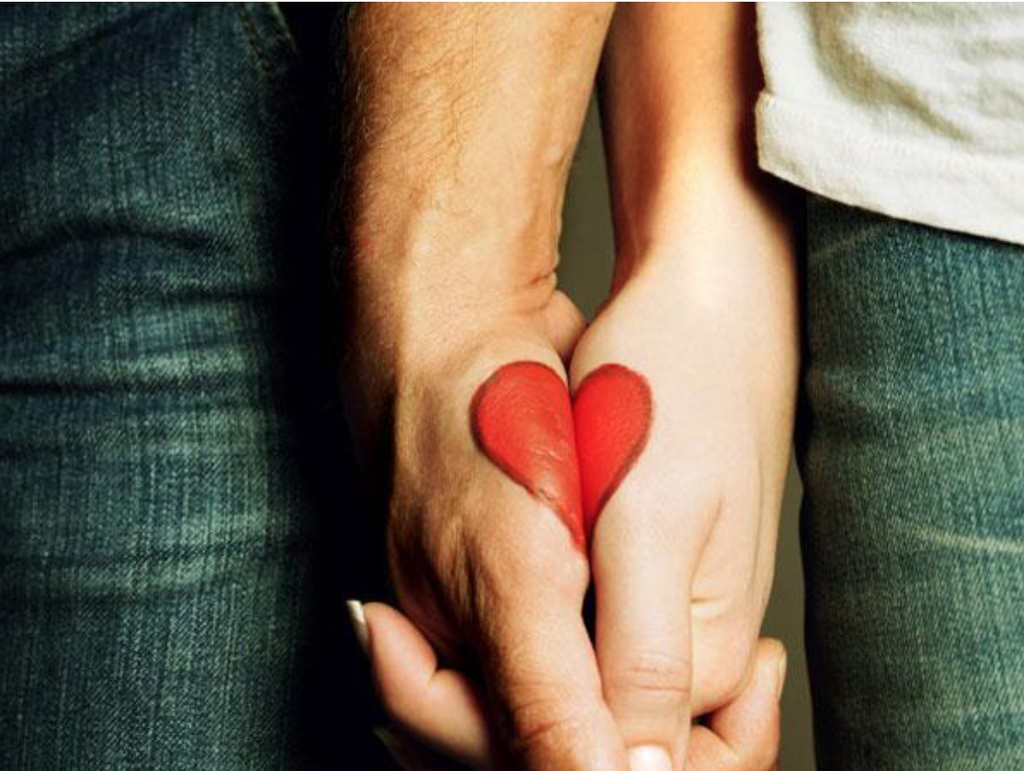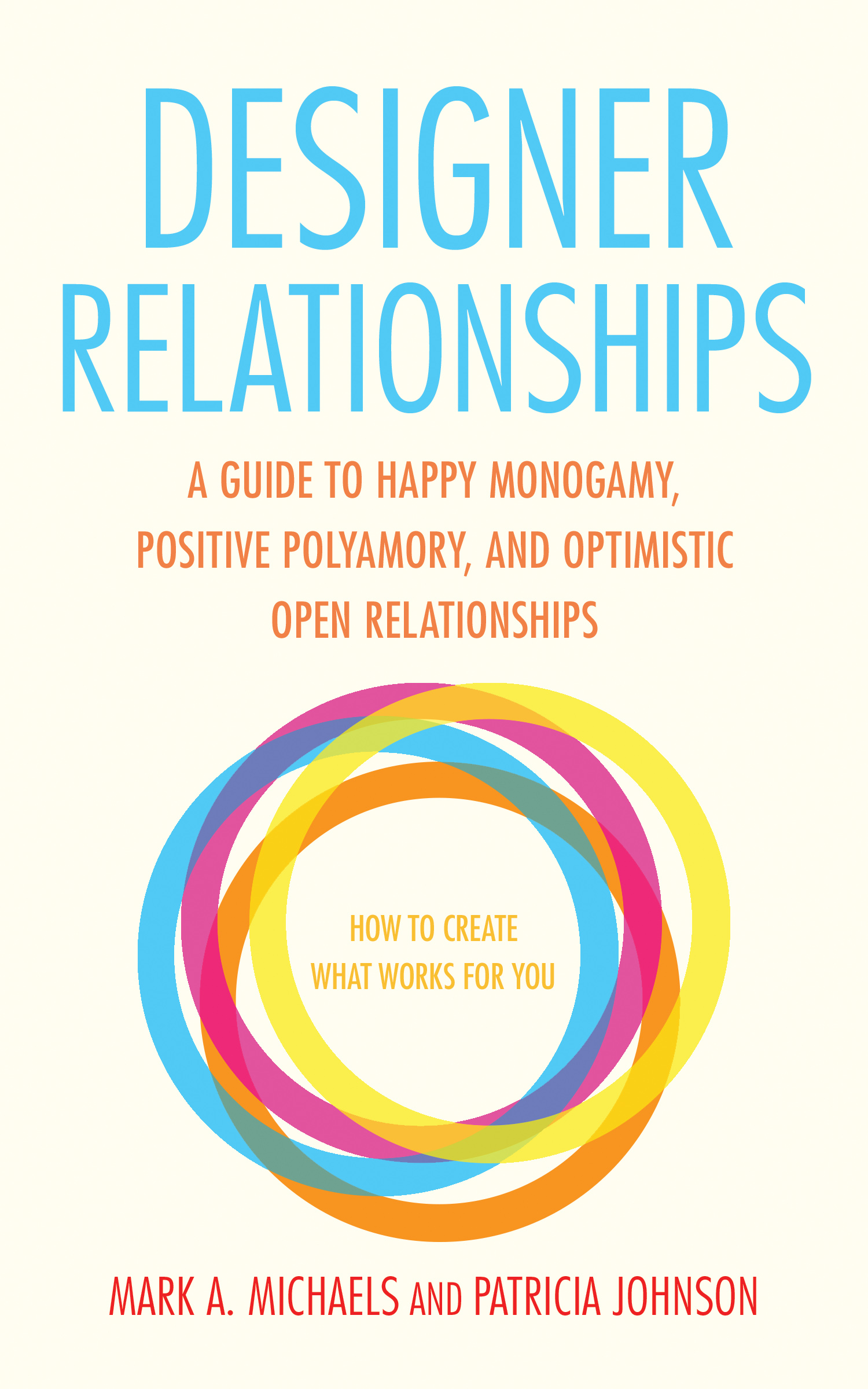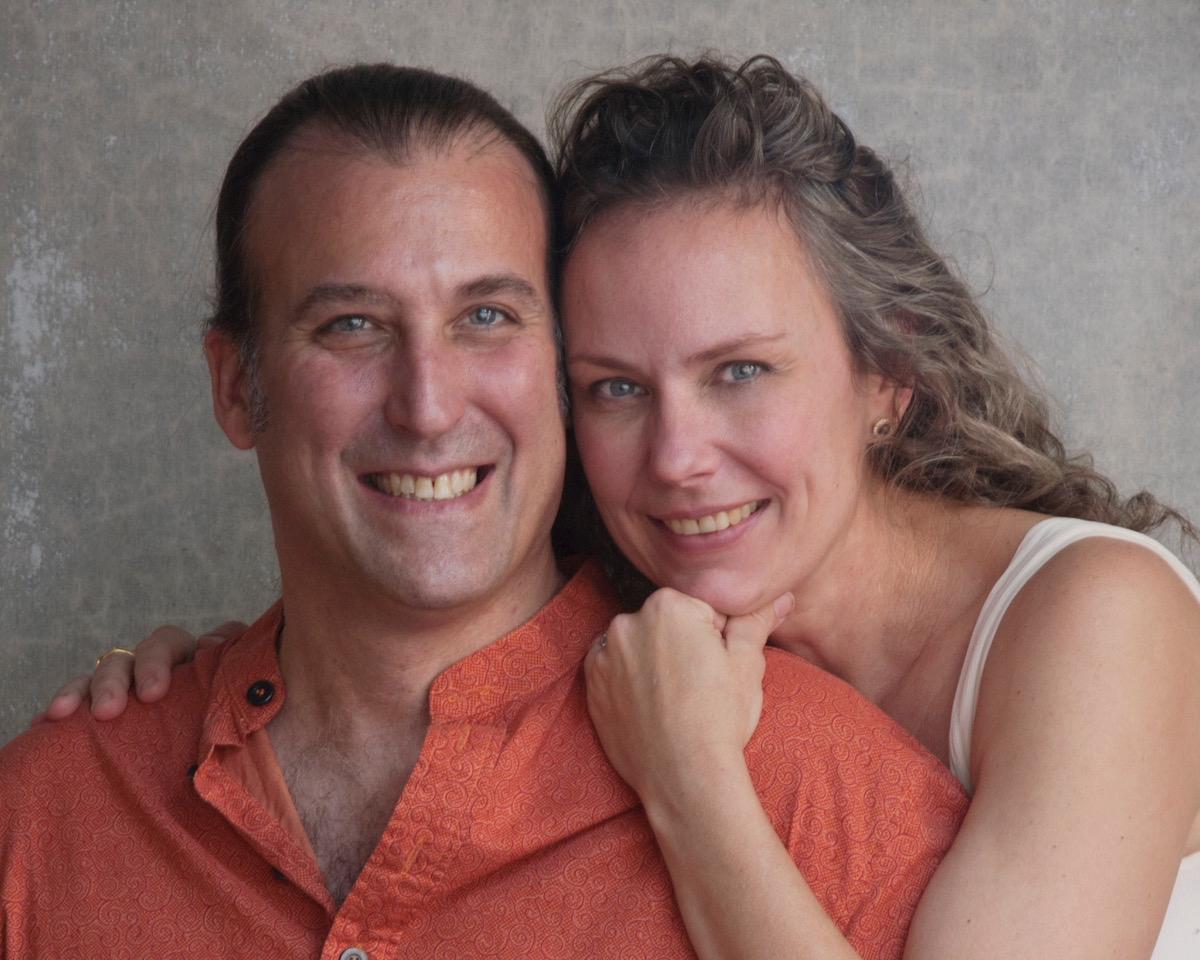“Designer Relationships”
Written by Cheryl Besner on Oct 8th, 2018

“If you don’t design your own life plan, chances are you’ll fall into someone else’s plan and guess what, they haven’t planned for you”-Jim Rhon-
When it comes to relationships, does one-size really fit all? We can’t choose our parents but from that point on, is the world our oyster? Aren’t all other relationships supposed to be a choice we make, one that works best for us to create our happy life? The cherry on our SUNDAY’S!
The authors of Designer Relationships; Mark Michaels and Patricia Johnson recently shared with me what makes their relationship a success story after being together for 19years.

Their book is intended to guide people towards happier relationships whether it is: monogamy, polyamory or open relationships that people chose to be in. There are different types of sexual and romantic relationships and this is an insightful read that deflates the idea that one type of relationship works for everyone.
Contemporary relationships are growing and evolving. These changes can and should empower people with the opportunity to develop partnerships based on their own sexuality, understandings, and agreements. Let’s be real, some have a stronger sexual appetite than others but does that mean they are incapable of committing to one person?
The key to an open relationship working is that both people have to be on the same page. You can’t force your personal needs on the other person as that’s a recipe for disaster.
An open, loving and considerate dialogue is key to any relationship!
Mark: “When we started out, we had no goals in mind; we just were in a place to allow it to evolve as it did…”
That word commitment means different things to different people! Mark and Patricia like to consider they are DEVOTED versus COMMITTED and here’s why!!
Cheryl: “I went to Google for the difference between committed and devoted and there are so many different definitions of the two but most people say they want to be in a committed relationship… you think committed means like putting somebody into asylum so why did you make the choice to use the word devoted?”
Patricia: “One reason is that if it’s a commitment, you’re done if you walk away from it you know you put it on paper you sign it in front of people and you’re done. When you’re devoted to something that’s a constant evolution it’s a daily practice, a way of focusing and paying attention to your partner…”
Mark: “The reason we’re uncomfortable with the word commitment is a lot of times people make commitments to each other without a clear sense of what it actually is… whereas if it’s a devoted relationship, it really is a mutual thing. You have to be engaged with one another …cause if you’re just pretending to be devoted it’s not gonna work for very long…”

Mark and Patricia.
A lot of people gravitate towards the committed type of relationship when setting goals, wanting to know if the other person is in it for the long run, wanting to build on something together and live the “happily ever after”.
Patricia: “It requires all partners to be focused on the present moment…that your devotion makes your relationship continually an evolving adventure …rather than a story pre-set in stone and this is where I expect you to be in 20 years or so… it’s much more freeing and organic…”
Michael: “Usually what commitment means is, I’m gonna be sexually exclusive with you… or other social relationships…there’s a lot of unexamined stuff that goes with the idea of commitment….if you re-frame it as devotion, then it becomes a process and a dialogue that you can have rather than a violation of the commitment that you have…”
No matter what type of relationship you chose to be in, you have to communicate with your partner and make sure that things are clear. You can never assume things and expect for the other person to think and act like you. Having open conversations to make sure your ideas of a relationship align with each other and that you are headed in the same direction is essential.
Cheryl: “Expectation can be the kiss of death to any relationship…one of the things that you talk about is how it’s empowering for everyone in a relationship to examine all types and freely choose the one that works for you and I really believe in that as well. I believe that we all have to design our own relationships.”
People have preconceived notions of how relationships should be based on upbringing, traditions, personal experience and social pressure. We’re all different human beings with different needs, so how can one type of relationship suit everyone? Many argue that monogamy is the only way to go. Who said that one has to get married and have kids to feel fulfilled in life?
“Cheryl: “The majority of people default to the fact that well we’re supposed to be monogamous and what’s interesting is a lot of people believe that monogamy is natural and the fact is monogamy as you just said it’s a choice and it’s a choice we make every single day…”
Cheryl: “How do you describe your relationship?”
Mark: “We say that we’re pair bonded and non-exclusive… I think a lot of people are unhappy in their monogamous relationships … we feel that people just fall into monogamy as default and don’t know what it means …and how they’re going to practice it.”
Patricia: “Everything that we do in every interaction is with a goal in our mind to enhance our primary connection or our bond…Most people haven’t even had an in-depth conversation about what monogamy means to each other so they operate assuming that whatever their internal definition is that their partner will automatically be following that they have really decided what that is for them…”
People are more willing to be in different types of relationships than they used to be. The one-size-fits-all, let’s get married and never be with anyone else doesn’t fit everyone anymore. Many find the typical traditional relationships end up in divorce and break up families over one cheating or an adventure with someone outside the relationship that didn’t really mean anything but sex. Question is: Is it worth breaking up a couple?
Cheryl: “What’s the difference between true monogamy and social monogamy?”
Mark: “Social monogamy is if you as a couple are only socializing as a couple and don’t see people outside of that….or for some people viewing pornography is viewed as a violation of monogamy or even flirting ….”
Patricia: “Flirting in its best is a way of making another person feel really good about themselves …there’s a relational aspect to it, flirting when it’s dysfunctional has an agenda so it’s manipulative it has an end goal …”
Cheryl: “There’s a part in your book … what is monogamish?”
Mark: “Our relationship as a couple is really primary … but occasional encounters outside of the primary relationship…”
Cheryl: “As we grow and age, we learn from everything that we experience…from past relationships not “failed” relationships…ones that have reached an expiration date…that we take forward and learn the communication…You have to love your life and live your life the way you want. Designing your life is really knowing a lot about yourself…also, you have to know who you are before you can actually decide on your relationship…”
Living an unconventional lifestyle can have its challenges and is not for everyone. But if two people are devoted and or committed to each other and believe in living together happily ever after based on the same lifestyle, values, goals and agreements, then it can definitely work for them.
Communication is the key in any type of relationship that you choose suitable for you. The important thing is to live a happy life no matter what. You have to love yourself, own who you are as a person and choose someone that shares the same views as you. What does “happily ever after” mean to you? Only YOU have the answer to designing your relationship.
If you need any help or my support in dealing with this topic or any other relationship challenges, please do not hesitate to reach out to me 1-844-744-SOLO and remember to Keep it Simple and Stimulating because we all know it’s all about the KISS.
xo Cheryl 💋
NB: “Failed” relationships”… I believe that we should never reflect on past relationships that ended as a failure but rather as a learning experience that will help us to grow and be better individuals and thus better partners.”



SHARE